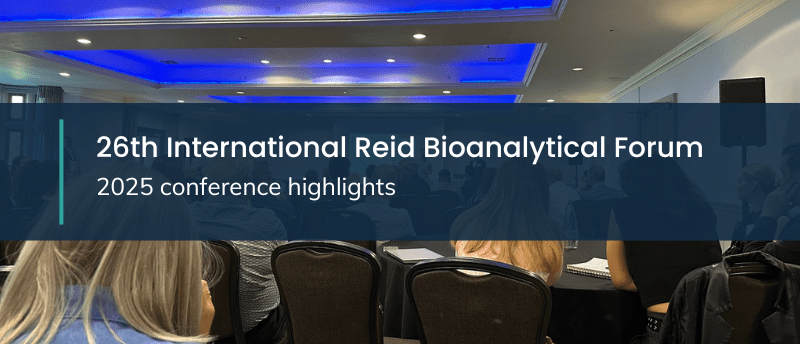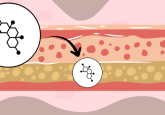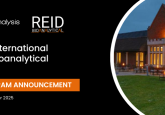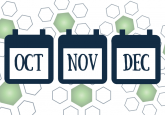Editor’s highlights from the 26th International Reid Bioanalytical Forum

The International Reid Bioanalytical Forum celebrated its 50th anniversary and 26th meeting this September, taking place from 8−11 September 2025 at the Cambridge Belfry, Cambourne, UK. This milestone event featured sessions exploring bioanalysis beyond pharma, beyond the lab and beyond LC–MS, with additional tracks dedicated to both open and regulated sessions. Browse our highlights from the event with George Leung, Commissioning Editor for Bioanalysis.
The emerging role of mass spectrometry imaging and spatial omics in advanced bioanalysis
Speaker: Gregory Hamm, AstraZeneca (Cambridge, UK)
During the forward-thinking ‘Bioanalysis of the Future’ session, Gregory presented on the integration of mass spectrometry imaging (MSI) with spatial omics technologies. He emphasized the importance of coupling the direct presence of endogenous metabolites and pharmacological substances while preserving both spatial and molecular context/information of omics interactions. Gregory demonstrated how MSI are revolutionizing drug disposition and safety/efficacy testing and concluded by showcasing AstraZeneca’s strategic implementation of spatial omics across their R&D pipeline.
Further reading: In the Zone on MSI imaging
How much can, or should, I automate? What is the future of lab automation, and can we remove humans totally?
Speaker: Jason Wrigley, Astech Projects (Runcorn, UK)
In his open session presentation, Jason began by highlighting the question: why automate? Beyond the well-established benefits of enhanced reliability, repeatability and error reduction, he presented several overlooked advantages, including how automation can supplement areas with critical skill shortages. So, what can be automated? Jason made the compelling case that virtually any human-performed laboratory task can now be automated and followed up with demonstrations of automated workflows in action. His concluding message encouraged attendees to embrace these technological advances and not fear them.
Re-platforming experimental data: unleashing the power of modern analytical instrumentation
Speaker: Anthony Edge, Chromatographic Society (Salisbury, UK)
During the ‘Bioanalysis beyond LC–MS’ session, Anthony addressed the critical ‘data utility gap’ and how it is impeding analytical and scientific AI progress. He emphasized that while scientific AI requires large-scale, liquid and well-engineered data, most of the scientific data we have to feed these analytics remains trapped in isolated silos, with raw data formats incompatible with AI processing requirements. Anthony then looked at how we can maximize the value of our scientific data, which is a progressive journey, but is helped by the development of structured datasets. He concluded the talk by discussing the technical and ethical challenges of AI for bioanalysis, including data privacy concerns and the substantial computational resource demands that may limit its scalability.
Screening assays for Anti-AAV antibodies in support of gene therapies: TAb or NAb?
Speaker: Robert Nelson, BioAgilytix (NC, USA)
In the regulated bioanalysis session, Robert evaluated the non-clinical and clinical Phase I+ assays currently in use and posed the question: with so many bioanalytical endpoints available, what should we be measuring? He emphasized the imperative to be as efficient as possible, ensuring maximum benefit and minimum risk to the patient. Robert then went on to discuss total antibody (Tab) vs neutralizing antibody (NAb) assays, detailing the advantages and disadvantages of each. While acknowledging the strong correlation between these assays in practice, he stressed that they are not completely interchangeable. He concluded by raising a final question: do we always need both or can we take a fit-for-purpose approach?
You can find more resources from the International Reid Bioanalytical Forum here.

Commissioning Editor George Leung (middle) with Head of Expert Medicine, Roshaine Wijayatunga (left), and Chair of the Reid International Bioanalytical Forum, Neil Spooner (right) at Reid 2025.






